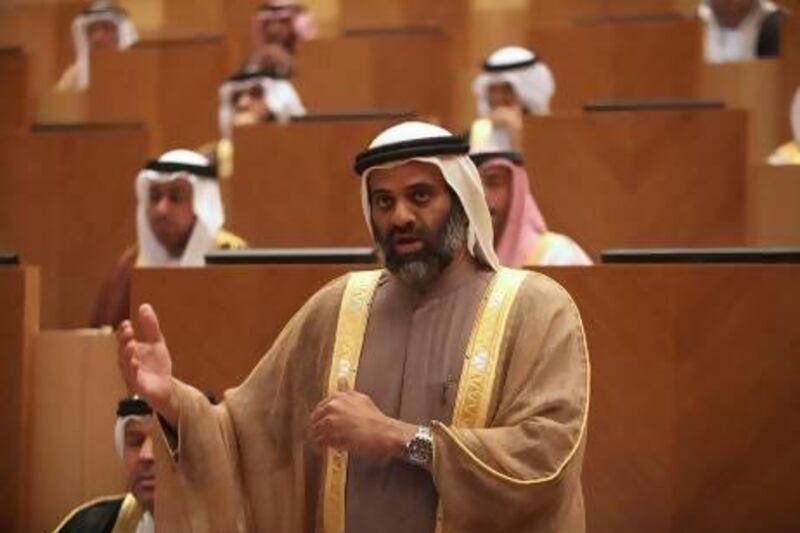ABU DHABI // The FNC’s new human rights committee’s responsibilities will include dealing with international criticism of the UAE’s record, members have decided.
The committee’s mandate was approved by members on Tuesday.
After a European Parliament resolution in October criticised the UAE’s record on human rights, FNC members appealed to the Government for a committee to be set up.
The report criticised conditions for migrant workers, the status of women and the death penalty.
Council members said they were shocked by the allegations and the way the EU Parliament tackled a sensitive issue without approaching the UAE through its constitutional, executive and legislative institutions, or its social organisations.
Emiratis had also pressured some of the council members, asking for the FNC to play a bigger role in tackling criticism that was tainting the image of the country.
The committee was approved in December. Since then the heads of the existing committees have met three times to discuss what its responsibilities should be.
They decided it should help to tackle international criticisms of the UAE’s human-rights record and propose ways to deal with them, among other roles.
FNC member Hamad Al Rahoumi (Dubai) read out the committee’s mandate on Tuesday.
All that remains is to elect its members, which will probably be done at the next session in a fortnight.
“Then the committee can start its work,” Mr Al Rahoumi said.
In determining the mandate, the committee heads studied the responsibilities of such committees in other countries’ parliaments.
“We carried out studies and made comparisons with all countries,” Mr Al Rahoumi said.
“We saw in each country how they do it and we took what we can. Some were very open, some were very closed, so we kept in mind what the powers of the council were.”
The committee will be charged with “enhancing the protection of and respect for human rights and fundamental freedoms, in accordance with the standards of human rights and constitutional law, and international agreements the country is in”.
It will be able to discuss general topics and consider parts of bills relating to human rights. International agreements will be followed in every law, Mr Al Rahoumi said.
Its members will also prepare reports for international organisations and the United Nations.
“It will also spread a culture of human rights and awareness of it through organisations and entities related to education and training, and media,” the FNC said.
Faisal Al Teniji (Ras Al Khaimah), a member of the Human Rights committee in the International Parliamentary Union, intends to run for a place on the committee.
Mr Al Teniji said that in the case of Wadeema’s Law on child protection, the parts dealing with human rights would probably be referred to this committee.
Mr Al Rahoumi agreed.
Wadeema’s Law is being studied by legal experts and has not yet been passed to the health, labour and social affairs committee.
While Mr Rahoumi was unsure how many members would want to be on the committee, they have asked for regulations to be changed to allow more members to run.
Members can be on a maximum of only two permanent committees.
[ osalem@thenational.ae ]






